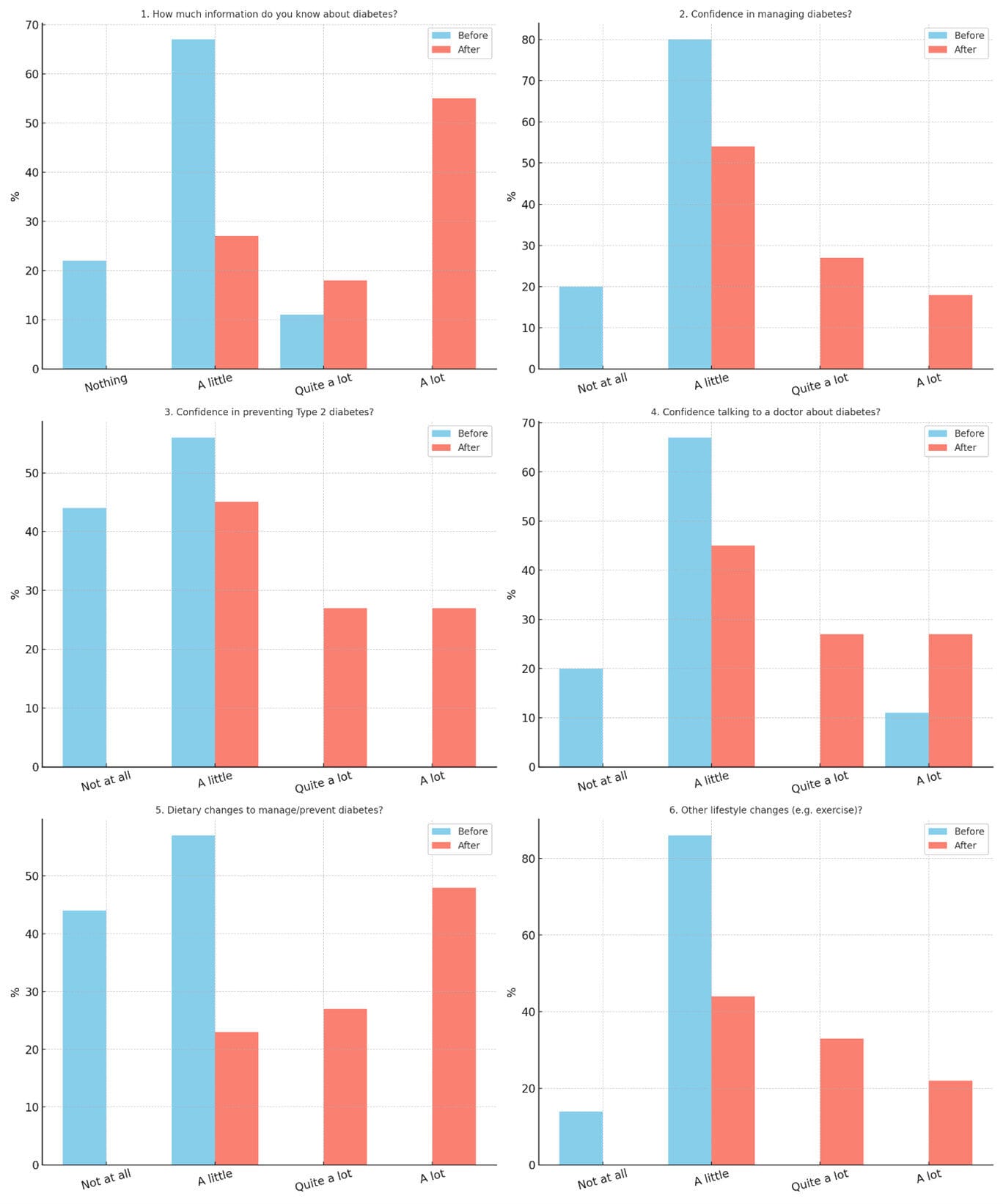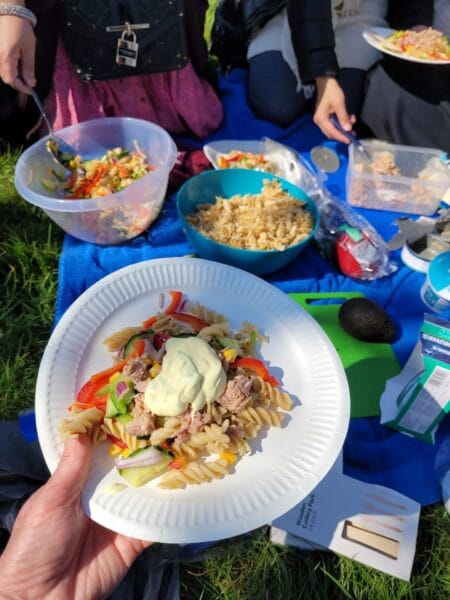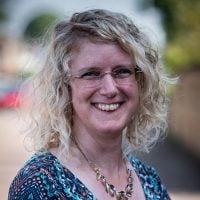Co-designing support for diabetics and pre-diabetics

BD_Collective in Barking and Dagenham, a network of voluntary and community sector organisations, was commissioned by North East London ICB to co-design and test new solutions to improve diabetes and health literacy outcomes in the borough. As one of London’s most deprived areas, and one of it’s most diverse, there are often challenges in tackling health inequalities within the borough, with rates of diabetes being a key health issue for residents. FaithAction was one of 7 partners developing solutions in partnership with diabetic and pre-diabetic residents. Residents quickly identified a lack of English language, jargon and illiteracy in languages written materials are translated into, combined with misinformation they had heard and believed as key barriers. Quite simply if you don’t know what the condition you have is and what advice means to manage it, you are not going to being able to do anything about it!
As a result, participants co-designed a pilot of 5 new Creative English sessions to answer their questions, plus 4 community-activities to help them put learning into practise, including a visit to a supermarket to look at healthier choices and making a healthy meal together.
Participants found the peer support element was very helpful. It was considered beneficial to have a facilitator who was open about their mistakes and struggles, as it really helped people to be explore the topic honestly. As one person said:
“When doctor say [advice about being diabetic], I just say ‘ok’ when I not understand, but here I ask question[s] and discuss thing[s]. Everyone have same problem. I not feel bad saying truth.”
Participants also reported finding games helpful in helping them process what was happening in their bodies and why change was needed. For example:
“I liked the game we did about the clots. There’s a difference between knowing and making changes and that made it real to me.”
They also found the role-play helpful with the opportunity to explore the real-life challenges of family members who do not ‘buy-in’ to healthier eating, enabling the exploration of different strategies to address this.
Getting to taste healthier options was important, as budgets were tight and people were inevitably extremely keen not to waste food. The opportunity to share recipe ideas and strategies for cooking more healthily was valuable. Food packaging proved difficult to interpret, with the traffic light system not being helpful for diabetics, but by the end of the supermarket trip people could identify the levels of sugar and what to look out for.
The pilot group, perhaps due to the wintertime, were keen to focus on diet rather than exercise, but there was certainly interest by the end in expanding this into a regular opportunity to walk and talk.
All participants in the pilot made progress in all measures ‘before’ and ‘after’ the programme. This included measures of their knowledge, understanding, confidence to manage the condition and in acting on life style change.

Some example case studies:
H had other family members with Type 2 diabetes. She said “Everyone in my family has diabetes. This is a very important topic for me. I don’t want diabetes but it seems there’s no choice, but doing these classes I am understanding more about how the body works and how I can eat in a way that I don’t have to get sick. Going to the supermarket as a trip is important to me because sometimes the supermarket seems overwhelming, but going together and looking at things I buy. It helps.”
M has struggled to stabilise her blood-sugar levels. She is on medication but prior to that they were “all over the place”. She said, “At first, I didn’t even want to say I had diabetes. When you asked about this course, I said my husband is diabetic, not me. Now I’ve done this course I think it’s very practical. There were things I didn’t know from my doctor, but also I didn’t really want to eat differently. Doing this course, I’m determined to change and improve my health for good. I think it helps doing it with other people. Understanding, like Peter in the story, that you may not want to change, but together we can improve. I found learning about the packaging very helpful and what to look for – above/below 10 for 100 g. I can do that. And it was encouraging to find I knew some things to help others- like the own brand Weetabix has less sugar.”




